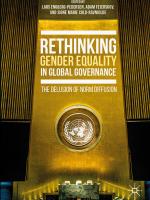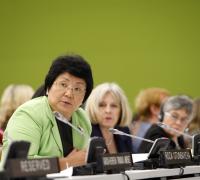New book on global norms and gender equality
The study of how global norms influence policies and practices around the world has become a principal field of scholarship across international studies. Here, the broad umbrella of ‘gender equality’ has become a central empirical arena for exploring how such norms are engaged with, potentially move, and influence policies and practices, informing broader theoretical and conceptual debates with fresh thinking
This new collection, edited by DIIS researchers, provides a novel theoretical approach to the study of how global norms influence social processes. It analyses the institutional and highly political processes whereby actors – be they local, national, regional or trans-national – engage with global norms of gender equality.The editorsbring together key thinkers who emphasise how context and history effect norm engagement and how particular groups and actors tend to be marginalised from discussions of global norms.
By proposing a situated approach that underlines the contingent, multi-level processes that occur when actors interpret, use, manipulate, bend, or betray norms, notions of norm diffusion are fundamentally challenged. This book makes a further crucial contribution to the study of norms and gender equality in global governance by analysing very different empirical contexts, from New Delhi and St. Petersburg to the Organisation of American States, and from Kampala and New York to the European Union.
DIIS Eksperter




